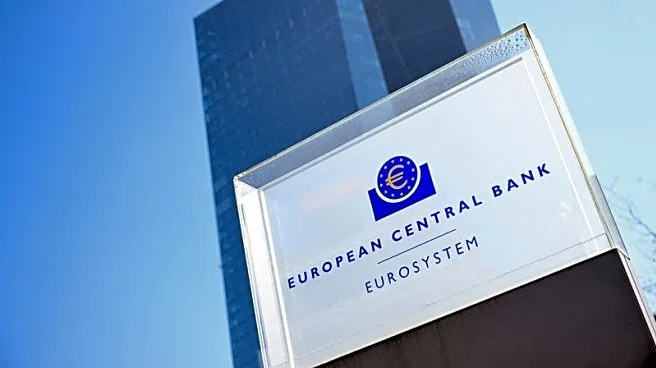FRANKFURT (Reuters) -Credit growth to euro zone firms slowed last month but businesses remained optimistic about their prospects, even if profits are deteriorating and inflation could end up on a higher
path, separate European Central Bank surveys showed on Monday.
The euro zone economy has proved resilient this year amid tariff uncertainty but growth is still only about 1%, suggesting the economic gap with the U.S. will continue to widen.
"A net 25% of firms remained optimistic about developments in the next quarter – more than in the previous quarter," the quarterly Survey on the Access to Finance of Enterprises showed. "At the same time, firms continued to see a deterioration in their profits."
FIRMS SEE INFLATION ABOVE ECB TARGET FOR YEARS
The survey also showed that inflation expectations were broadly steady, but firms saw price growth above the ECB's 2% target for years to come and even saw a risk of acceleration.
Inflation has been around target nearly all year and the ECB itself sees it under 2% for most of the next two years before rising back up to target in 2027.
"Median expectations for annual inflation one year ahead stayed at 2.5%, while expectations for three and five years ahead remained at 3.0%," the ECB said. "For the five-year horizon, most firms continue to indicate that risks to the inflation outlook are tilted to the upside."
Credit growth to firms, meanwhile, slowed in September, although the rate remained near a two-year high, and household lending continued to expand at its strongest pace since early 2023, the ECB's report on monetary developments showed.
Credit growth has been on an upward trend all year, fuelled largely by 2 percentage points of rate cuts in the year to June, which has encouraged investment, despite uncertainty.
"Looking ahead, firms are slightly less optimistic about obtaining future investment than they were in the preceding quarter," the SAFE survey showed.
Credit growth to businesses eased to 2.9% in September from 3.0% a month earlier, while loan growth to households rose to 2.6% from 2.5%, its highest since March 2023.
Meanwhile, the M3 measure of money circulating in the euro zone, often an indicator of future activity, expanded by 2.8%, down from 2.9% a month earlier but in line with expectations.
(Reporting by Balazs Koranyi. Editing by Toby Chopra and Mark Potter)









